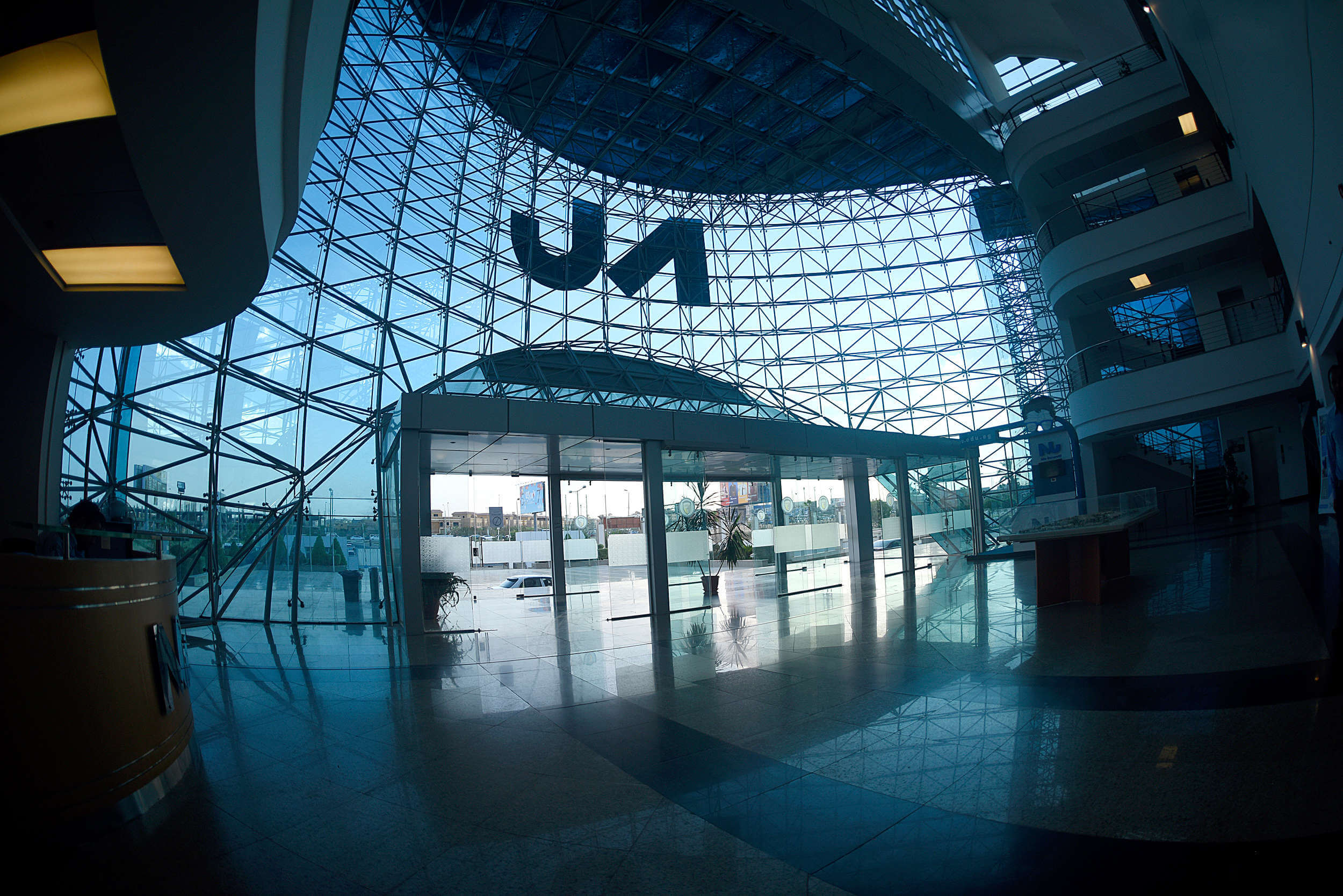Courses
Machine Design
Introduction to design concepts. Engineering materials used for design of mechanical components. Stress concentrations. Design for Different Types of Loading (steady and cyclic loadings). Fasteners, connections, and power screws. Spur gears. Helical gears. Design of shafts. Selection of bearings. Design of helical compression springs. Design of columns and struts. Utilization of interactive
MENG 303
Thermodynamics I
The course gives an introduction to the basics concepts of thermodynamics as related to the conversion of heat to mechanical work. Topics include, properties of pure substance, 1st law of thermodynamics for open and closed systems, 2nd law of thermodynamics, entropy and entropy change.
MENG 304
Fluid Mechanics I
The aim of the course is to introduce the students to the topic of fluid mechanics. Topics include the difference between a fluid and a solid, properties of fluids, fluid statics and hydro-static forces, continuity equation and steady flow, jet forces and momentum equations, Bernoulli equation and its applications, pressure losses and pipes and fittings.
MENG 305
Kinematics and Dynamics of Mechanical Systems
Introduction to linkages, types and classification of joints, mechanisms and machines. Calculation of degrees of freedom (mobility) for planar mechanisms utilizing Gruebler and Kutzbach equations. Grashof and non-Grashof conditions. Paradoxes. Intermittent motion. Toggle. Transmission angle. Compliant mechanisms. Cognates. Function generation. Motion generation. Path generation. Kinematics
MENG 306
Modeling and Simulation of Dynamic Systems
The course will also provide students with thorough understanding of the sequence of activities related to computer simulation (problem statement, data acquisition, model design, simulation experiment, verification, techniques and methods in different industrial and research applications. Topics covered: Discrete Event Simulation, Random Number Generators, Analogy between different physical and
MENG 307
Heat Transfer I
This course is a first course in Heat Transfer. The main goal is to gain a deep physical understanding of the heat transfer process by either conduction or convection. Topics include introduction to the concept of heat transfer, conduction heat transfer equation, steady state heat conduction, transient heat conduction, introduction to convection, forced and free convection.
MENG 308
Practical Training
A minimum of four weeks of practical training in off-campus sites elected by the department. Students are required to submit a recognition letter from the site where they received their training, in addition, a report and a presentation are submitted as well. Course is a Pass/Fail course.
MENG 391
Mechanical Vibrations
Free and forced responses of one and two degree of freedom systems. Applications to engineering systems involving vibration isolation, rotating imbalance and vibration absorption. Elements of vibration measuring systems, frequency analysis of mechanical vibration, introduction to condition monitoring fault detection and passive vibration control techniques.
MENG 401
Graduation Project I
Application-oriented capstone project to show competence in major academic area, where an independent research project is conducted under the guidance of a faculty member in the MENG Department. The research should contribute to the advancement of knowledge in the field. Written report and formal presentation are required.
MENG 493
Selected Topics in Environmental Science
A course in any of the fields of environmental sciences related to the discipline it is offered to.
NSCI 102
Selected Topics in Entrepreneurship
In this course, students get an overview about the definition of entrepreneurship, examples of successful innovations, and the prospects of starting a company. The course covers idea generation and identifying opportunities, business model canvas, and an overview of some business fundamentals such as types of businesses and business functions, in addition to communication and presentation skills.
ENTR 301
Electronic devices and applications
Crystal structure of semiconductors (electrons, holes, impurities, Fermi level, diffusion, continuity equation), semiconductor diodes (P-N junction, V-I characteristics, forward and reverse bias), diode circuit applications (rectifier and clipping circuits) BJT, MOS, JFET transistors, V-I characteristics, physical construction, signal amplifiers, bias circuits, transistor circuit model, AC and DC
MENG 321
Electric Machines and Drives
The course covers the basics electromagnetic fields in electromechanical devices and drives. Which includes Production of magnetic field, Faraday's law (transformer action), production of induced force on a wire (motor action). Types of DC Motors: Separately-excited Motor, Self-excited Motor (shunt, series and compound types) the characteristics, and efficiency of DC motors. Transformers: Single
MENG 322
Fundamentals of Mechatronics Engineering
"Electromechanical system modeling, Control and Applications. Design of Electronic Interfaces and Controllers for Mechanical Devices. Sensor Technology, Signal acquisition, Filtering, and Conditioning. Microcontroller-based Closed-loop Control. Device Communications Sensor and actuator selection, installation, and application strategies.
MENG 323
Signal Processing & Logic Design
This course introduces mainly the signals in time and frequency domains and its usage for mechatronics field. In addition, the logic gates and Boolean algebra are also covered. The students should be able to understand the combinatorial logic circuits and bistable multivibrator circuits.
MENG 324

